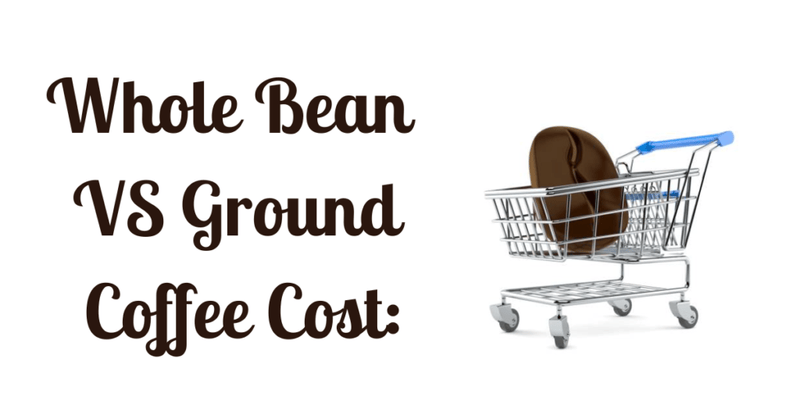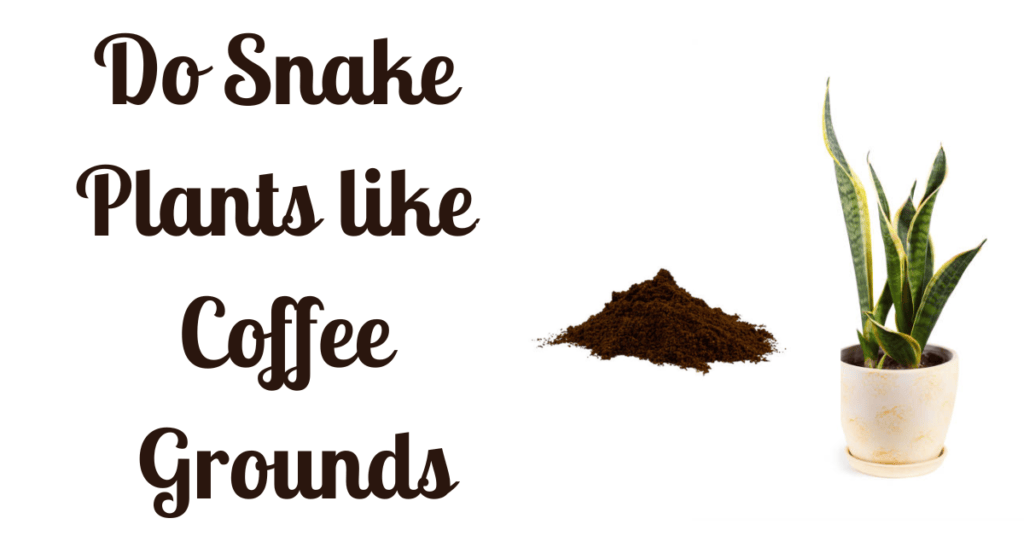Welcome to our exploration of the eco-friendly potential hidden in your morning cup! “Are Coffee Grounds Compostable?” is a question that unveils a world of sustainable possibilities for avid coffee lovers and garden enthusiasts alike.
Yes, coffee grounds are compostable and can be valuable to your composting efforts. Coffee grounds are rich in nitrogen, which is an essential component for successful composting. Nitrogen helps accelerate the decomposition process and contributes to the overall nutrient content of the compost.
When coffee grounds are added to a compost pile, they introduce organic matter that breaks down over time, creating a nutrient-dense compost beneficial for soil health. Example, coffee grounds can enhance strawberries‘ growth by introducing acidity to the soil, repelling pests, and supplying nitrogen.
Additionally, coffee grounds help balance the carbon-to-nitrogen ratio in the compost, promoting the development of a well-rounded and fertile mixture. It’s important to note that coffee grounds should be added in moderation. Too much can lead to compacting and slow Decomposition.
By incorporating coffee grounds into your composting routine, you not only divert waste from the landfill but also create a sustainable and nutrient-rich soil amendment for your garden.
From the science behind their compostability to practical tips on incorporating them into your compost pile, we’ll uncover the secrets of turning coffee waste into a powerhouse for plant growth.
Table of Contents
Are Coffee Grounds Compostable: What Is Coffee Grounds Compost?
Compost is a nutrient-rich, organic material that results from the natural decomposition of organic waste through a controlled biological process known as composting. Composting is a sustainable and environmentally friendly way to recycle kitchen and garden waste, turning it into a valuable soil amendment.
The process involves the breakdown of organic matter by microorganisms like bacteria, fungi, and other decomposers. Coffee grounds compost refers to incorporating used coffee grounds into a composting system.
Composting is a natural and sustainable method of separating organic matter into nutrient-rich soil conditioners.
Are Coffee Filters Compostable?

Yes, many coffee filters are compostable. Coffee filters from unbleached paper, hemp, or bamboo are generally considered compostable. It’s essential to check the packaging or product information to confirm if your specific coffee filters are indeed compostable.
You can include them in your compost pile or municipal composting program if they are. However, suppose the filters are made from materials like plastic or have a plastic lining. In that case, they may not be compostable and should be disposed of in regular waste.
Always follow the manufacturer’s recommendations for proper disposal.
Information About Coffee Grounds
Enjoying a brew at night may offer improved focus, enhanced mood, and antioxidant intake. However, exercise caution with caffeine intake close to bedtime, as it can disrupt sleep for some individuals.
Ground coffee doesn’t completely Immerse in water; instead, it undergoes extraction. Hot water extracts soluble compounds like flavour, oils, and caffeine from the grounds, resulting in brewed coffee.
Sparking coffee remnants can produce some smoke and may release compounds, but it is generally not toxic. However, inhaling any type of smoke, including coffee ground smoke, can irritate the respiratory system. It’s advisable to burn materials in well-ventilated areas and exercise caution.
Applying cooled, damp coffee grounds as a mask under the eyes may temporarily reduce puffiness due to the caffeine’s vasoconstrictive properties. However, it’s a short-term solution, and individual results may vary.
When purchasing beans, grounded coffee and whole-bean coffee differ in cost due to many factors.
Why Coffee Grounds Should Be Composted?
Composting coffee grounds is a sustainable practice laden with environmental benefits.
Accelerates Decomposition:
The nitrogen content in coffee grounds acts as an accelerator for the decomposition process.
This means that when coffee grounds are added to a compost pile, they quickly break down other organic materials.
This acceleration results in a faster production of nutrient-rich compost.
Enhances Soil Structure:
Composting coffee grounds improves the overall structure of the soil.
The organic matter from the grounds enhances soil aeration, drainage, and water retention.
These improvements create an environment conducive to healthy plant roots’ growth and encourage microbial activity in the soil.
Adds Nutrients to Compost:
Besides nitrogen, coffee grounds contain other essential nutrients such as phosphorus, potassium, and trace minerals.
When integrated into compost, these nutrients enrich the final product, providing a well-balanced fertilizer for plants.
This nutrient-dense compost supports robust plant growth and enhances soil fertility.
Example, Ground Coffee can benefit hydrangeas by adding acidity to the soil and influencing flower colour.
Indeed, these Grounds benefit Roses.
Coffee grounds benefit Hibiscus plants.
Coffee grounds can be beneficial for tomato plants too. Coffee grounds add organic matter to the soil, improve drainage, and may help deter pests.
Reduces Landfill Waste:
Composting coffee grounds is an environmentally responsible practice that helps divert organic waste from landfills.
Recycling coffee grounds through composting reduces the environmental impact associated with waste disposal while simultaneously creating a valuable resource for your garden.
Sustainable Gardening Practice:
Composting coffee grounds aligns with sustainable gardening practices. It exemplifies closing the loop on waste, where kitchen scraps are repurposed to benefit the garden. This sustainable approach reduces the need for synthetic fertilizers and promotes a more eco-friendly and self-sufficient gardening ethos.
In summary, composting coffee grounds is a multi-faceted practice that benefits the environment and your garden. From enriching compost with essential nutrients to reducing landfill waste, incorporating coffee grounds into your composting routine contributes to a healthier, more sustainable gardening experience.
Why Coffee Grounds Are Useful in Compost Creation?
While we’ve discussed the potential downsides of incorporating coffee grounds into the garden, understanding their benefits in composting is crucial. Despite some limitations, coffee grounds can be advantageous for garden health when used appropriately.
Reducing Waste
In the realm of organic gardening, minimizing waste is a crucial principle. Recycling nutrients and participating in nature’s cycles are essential for sustainable living. Composting coffee grounds is an effective method to reduce waste and align with eco-friendly practices.
Increasing Garden Nutrients
Creating compost is vital for long-term garden health. Essential nutrients are reclaimed when coffee grounds are composted with other organic and kitchen waste. Coffee grounds, rich in nitrogen, play a pivotal role in fostering plant growth by contributing to the nutrient profile of the compost.
Balancing nitrogen levels in the soil is crucial. Plants absorb nitrogen from the soil as nitrate (NO3-) or ammonium (NH4+). It is an essential component of amino acids, proteins, chlorophyll, and nucleic acids, all playing crucial roles in various physiological processes within plants.
Composting With Coffee Grounds
Adding coffee grounds to compost requires a measured approach. To prevent adverse effects, it’s vital to add them gradually and avoid overwhelming the system. Maintaining a balanced compost rich in nitrogen (green) and carbon (brown) materials is essential to prevent anaerobic conditions that lead to unpleasant odors.
Anti-Microbial Properties & Effects On Earthworms
While coffee grounds offer benefits, their anti-microbial properties can be a challenge. Creating an ideal environment for aerobic Decomposition is crucial, and an excess of coffee grounds can harm the beneficial microbes necessary for composting. There are concerns about the impact on earthworms, but mitigating this risk involves adding sufficient carbon-rich feedstock to the compost.
Understanding these intricacies ensures that including coffee grounds in composting is a well-balanced and sustainable practice, enhancing waste reduction and garden vitality.
Methods for Composting Coffee Grounds

Choosing the proper composting method for coffee grounds disposal plays a crucial role in maximizing its benefits and determining the volume suitable for your system. Explore the following standard composting methods to effectively recycle and preserve the nutrients found in coffee grounds:
1) Typical Cold Composting (Heap Or Bin)
- In a domestic setting, the prevalent approach involves adding ‘brown’ and ‘green’ materials to a heap, bin, or container called ‘cold composting.’
- While the materials heat up during decomposition, the temperature remains lower than in hot composting systems.
2) Vermicomposting
- Introducing specific composting worms to a container accelerates decomposition, producing nutrient-rich ‘worm castings.’
- Vermicomposting enhances the breakdown process in cold composting systems. Still, caution is advised when incorporating coffee grounds due to potential harm to worms.
3) Bokashi Systems
- Bokashi, a fermentation method distinct from traditional composting, provides an alternative for managing coffee grounds and other challenging compostable materials.
- Fermenting coffee grounds before adding them to cold or vermicomposting systems is recommended.
4) Hot Composting
- Hot composting aims for higher temperatures (60-68°C) than cold composting, expediting material breakdown.
- Limited coffee grounds can benefit a hot composting system due to their nitrogen-rich nature, aiding temperature regulation.
5) Composting In Place
- Composting in place, known as ‘sheet mulching,’ involves layering organic materials directly onto growing areas or garden beds.
- Coffee grounds can be incorporated in moderation within the ‘green’ layers of lasagna beds, provided they are well-mixed with other materials.
When composting coffee grounds, caution is necessary to avoid adverse effects on earthworms. The choice of method depends on your composting goals, with each approach offering unique advantages. Experimenting with different techniques can help you find the most suitable method.
How Long does it take Coffee Grounds to Compost?
The time it takes for coffee grounds to compost can vary based on several factors, including the composting conditions, the size of the coffee grounds, and the overall composition of the compost pile. Generally, coffee grounds are considered green in composting, meaning they are rich in nitrogen. Under optimal conditions, where the compost pile is well-balanced with a mix of green (nitrogen-rich) and brown (carbon-rich) materials and adequate moisture and aeration are maintained, coffee grounds can decompose relatively quickly.
In a well-managed compost pile, you may start noticing the decomposition of coffee grounds within a few weeks to a couple of months. However, if the compost pile lacks the right balance of green and brown materials or is too dry or compacted, decomposition may take longer. Similarly, the size of the coffee grounds can impact the composting process. Finely ground coffee may break down faster than coarser grounds.
It’s important to turn or aerate the compost regularly to provide oxygen to the microorganisms responsible for decomposition. A mix of other compostable materials, such as kitchen scraps, leaves, and grass clippings, helps create a diverse and balanced compost pile, promoting efficient decomposition. Coffee grounds can decompose within a few weeks to a few months under optimal composting conditions. Regular monitoring and maintenance of the compost pile will contribute to a faster and more effective composting process.
How Do Coffee Grounds help Compost?
Coffee grounds possess natural pest-repelling properties, effectively deterring certain pests and insects when incorporated into compost. This quality contributes to a healthier composting environment by reducing the likelihood of pest-related issues associated with decomposing organic matter.
- Example, Mice resist coffee grounds. In fact, the scent of coffee can act as a deterrent for rodents. Using coffee grounds strategically in areas where you want to discourage mice may help keep them away.
- Coffee grounds can be harmful to cats as well.
- Fruit flies are not attracted to coffee grounds.
Coffee grounds offer a beneficial soil amendment for plants that thrive in acidic soil, such as azaleas, blueberries, and rhododendrons. While the slight acidity of coffee grounds diminishes during composting, applying the resulting compost to the soil still provides a favorable environment for acid-loving plants, enhancing their growth.
Considering seasonal variations can optimize the benefits of coffee grounds in composting. Adjusting the ratio of coffee grounds based on the seasons proves advantageous.
During the growing season, when plants often require more nitrogen, increasing the amount of coffee grounds in the compost mix can support robust plant growth. This adaptable approach ensures that the compost meets plants’ specific needs throughout different phases of the year.
Coffee grounds are slightly acidic, which can help balance the soil pH levels in compost. While composting typically leans towards acidity, coffee grounds maintain an environment conducive to microbial activity.
Do Coffee Grounds Decompose?

Yes, coffee grounds decompose over time. Coffee grounds are an organic material rich in nitrogen, which is beneficial for decomposition. Microorganisms break down the coffee grounds into simpler organic compounds when added to a compost pile or directly to the soil.
This decomposition results in the creation of nutrient-rich humus, which can enhance soil fertility and structure. The decomposition rate can vary depending on factors such as the size of the coffee grounds, the overall composition of the compost pile or soil, and environmental conditions. In general, coffee grounds decompose relatively quickly compared to some other organic materials.
Adding coffee grounds to compost is a sustainable way to recycle this byproduct of brewing coffee and contribute to creating nutrient-rich soil for plants. It’s worth noting that coffee grounds can be a valuable addition to both home composting systems and larger-scale composting operations.
You can dispose of ground coffee in the garbage disposal. They can help clean and deodorize the disposal unit.
Are Used Coffee Grounds Eco Friendly?
Yes, used coffee grounds are generally considered eco-friendly. Chewing coffee grounds is generally safe, but the texture may be unpleasant. Larger amounts could lead to digestive discomfort, and the caffeine content may cause side effects like jitteriness or insomnia. It’s advisable to use coffee grounds as intended for brewing.
Ground Coffee proficiency involves experimenting with grind size, water-to-coffee ratio, and brewing methods. Use freshly ground beans, adjust the grind size based on the brewing method, measure coffee and water accurately, and fine-tune your process to achieve the desired taste. Here are some eco-friendly uses for used coffee grounds:
- Composting: Coffee grounds are a rich nitrogen source, making them a valuable addition to compost piles. They contribute to the decomposition process and help create nutrient-rich compost for plants.
- Gardening: Used coffee grounds can be sprinkled directly onto the soil in your garden. They can improve soil structure, drainage, and aeration. Additionally, some plants, like acid-loving ones such as azaleas and blueberries, benefit from the acidity of coffee grounds.
- Pest Deterrent: Coffee grounds can act as a natural pest deterrent. Sprinkling used coffee grounds around plants or garden beds can help repel pests like slugs and snails.
- Odor Absorption: Coffee grounds have natural odor-absorbing properties. Placing a bowl of dried used coffee grounds in the refrigerator, freezer, or other areas with unwanted odors can help absorb and neutralize smells.
- Cleaning Scrub: The gritty texture of coffee grounds makes them useful as a natural abrasive cleaner. You can use them to scrub pots, pans, and surfaces.
- Hair and Body Scrub: Mixed with a bit of coconut oil or another carrier, coffee grounds can be used as a natural exfoliant for the skin or as a scrub for your scalp.
It’s important to note that while used coffee grounds have many eco-friendly uses, it’s still crucial to be mindful of how you dispose of them. Coffee may perish if it loses its flavour over time.
If stored appropriately in a sealed container in a cool, dim environment, it remains safe for consumption after two years. However, the flavour may be less vibrant. Consider incorporating them into sustainable practices like composting or reusing them creatively to minimize waste.
Are Coffee Grounds Biodegradable?

Yes, coffee grounds are biodegradable. Coffee grounds are organic matter, breaking down naturally when exposed to the environment. They can be added to compost piles or used directly as a soil amendment in gardens. Burning ground coffee to repel mosquitoes is a viable option.
In composting, coffee grounds contribute valuable nitrogen to the compost, which is beneficial for decomposition. They also improve the texture of the soil and can be a valuable addition to plant growth.
It’s important to note that while coffee grounds are biodegradable, the filters used in coffee brewing should be considered separately. As mentioned earlier, paper filters are generally compostable, but checking the specific type and manufacturer’s information is essential. Clean a reusable metal or plastic filter properly, as these materials may not break down as quickly as organic matter.
To refine coffee grounds, utilize a fine mesh strainer, cheesecloth, or a specialized coffee filter.
Storing coffee in fridge is not recommended. The moisture and odours in the fridge can affect the coffee’s flavour and quality.
Are Coffee Grounds Compostable: FAQS
Why are there Maggots in my Coffee Grounds?
Maggots in coffee grounds may result from moisture, attracting fly eggs. Some are okay with it if found and simply incorporate the grounds, maggots included, into the soil.
What Animals Eat Coffee Grounds?
The Asian Palm Civet, known as kopi luwak, processes coffee by eating cherries and excreting the beans, making it a notable producer of sought-after and expensive coffee.
Is Tea suitable for Composting?
Tea leaves, including post-brewing leftovers, are compostable and rich in nitrogen, providing valuable nutrients for soil health and foliage growth, similar to coffee grounds.
Are used Coffee Grounds considered Green or Brown Compost?
Used coffee grounds are green compost material, rich in nitrogen, supporting microbial activity and aiding plant energy conversion in compost. Use them for a nutrient boost in your compost pile.
Wrapping Up!
As we wrap up our exploration that are coffee grounds compostable or not, it becomes clear that coffee grounds are not just a byproduct but a valuable resource waiting to be harnessed for sustainable practices.
The journey of making coffee Composting, a multifaceted art, offers myriad pathways for coffee grounds to become agents of positive change.
It extends beyond the mug, leading us into composting possibilities. Let coffee grounds be the catalyst for innovation in waste reduction and creating a sustainable ecosystem.
Beyond the confines of routine, coffee grounds emerge as champions of eco-conscious gardening, weaving a story of enrichment for the earth and nourishment for our plants.







